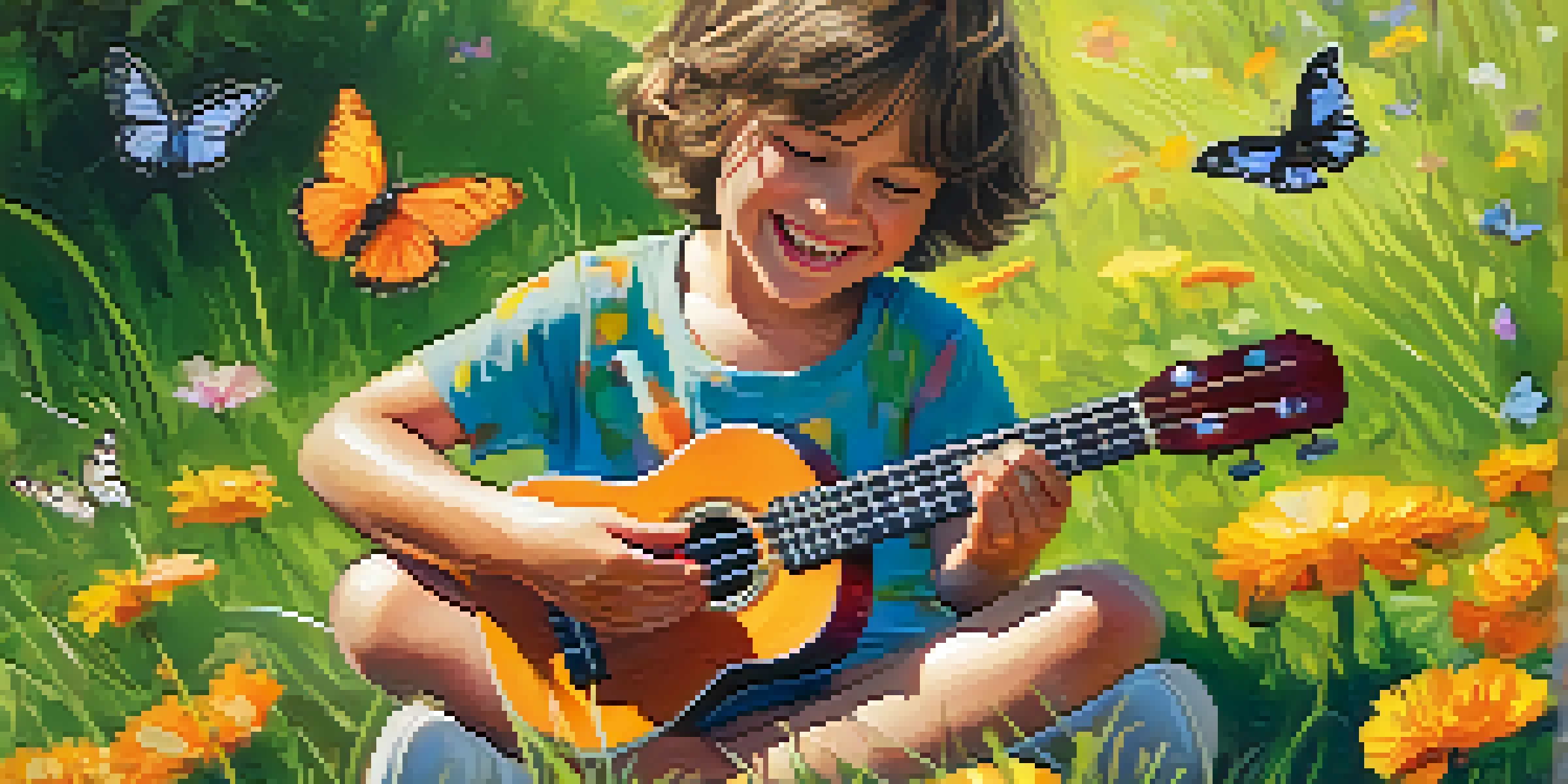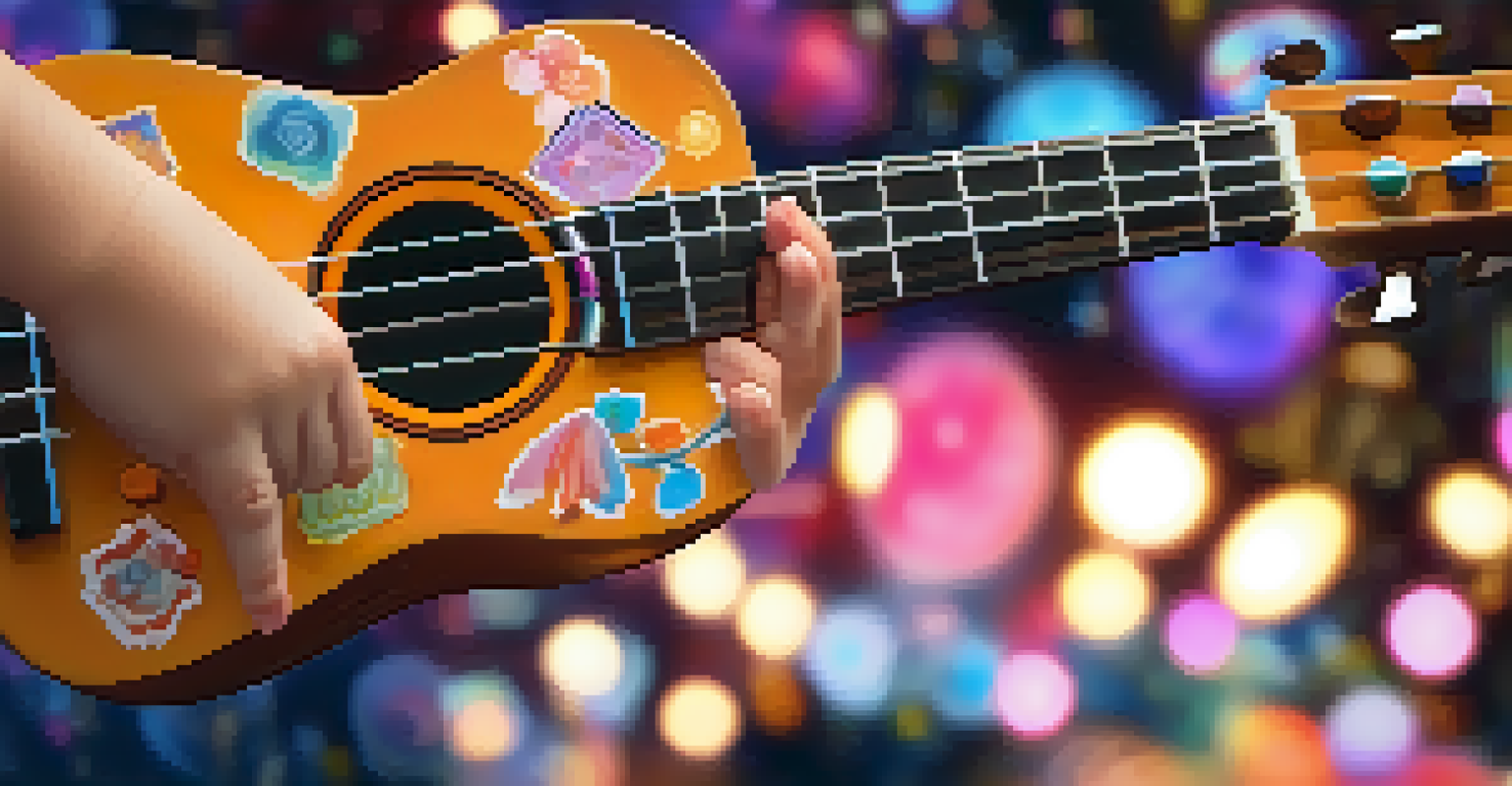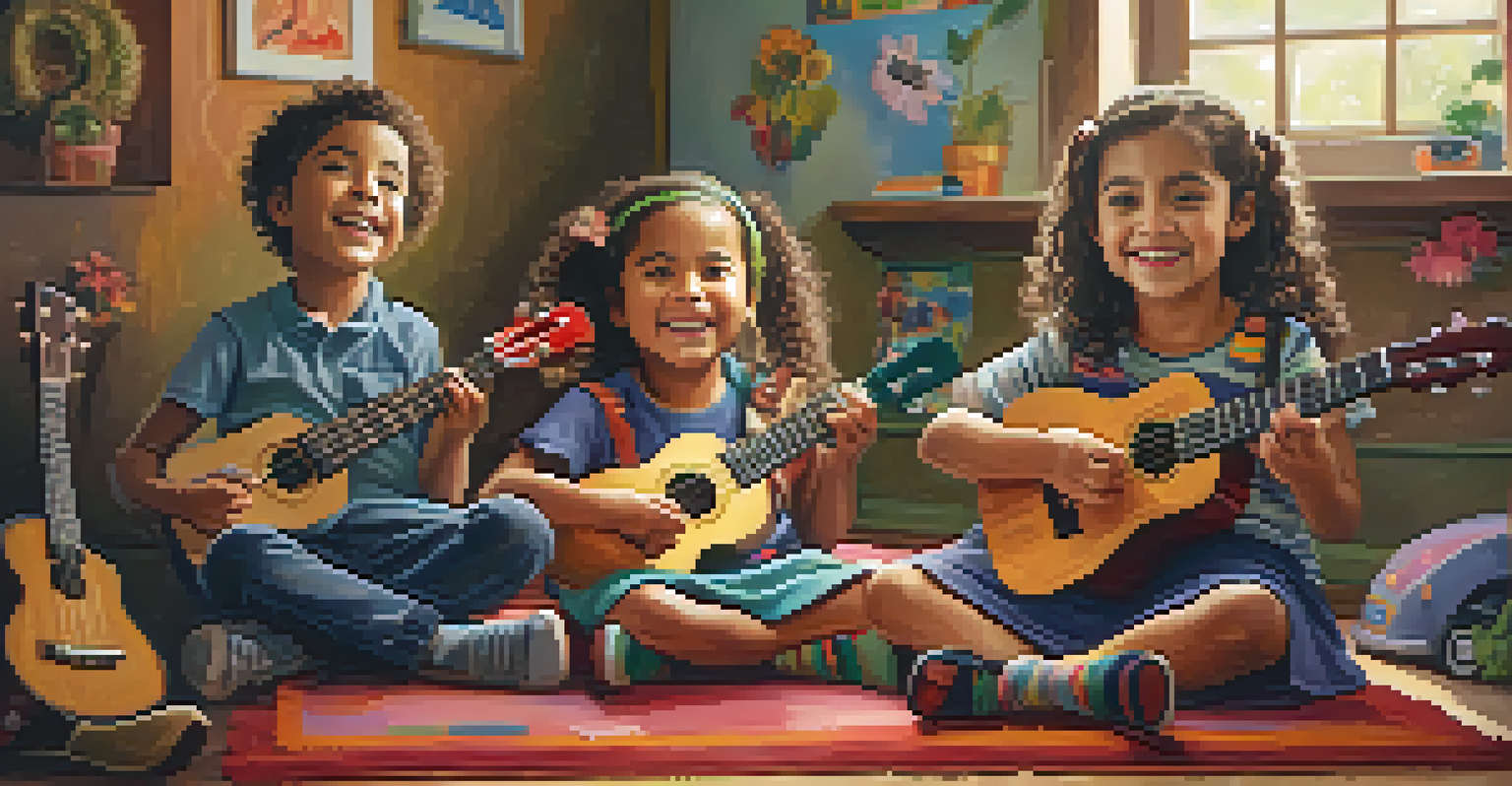Fun Ukulele Songs for Kids: A Beginner's Guide to Play

Why the Ukulele is Perfect for Kids
The ukulele is a fantastic instrument for kids, thanks to its small size and light weight. This makes it easy for little hands to hold and play. Plus, the nylon strings are gentle on the fingers, which is a big plus for beginners who might find guitar strings a bit harsh.
Music can change the world because it can change people.
Another reason the ukulele shines for children is its cheerful sound. The bright, happy tones can instantly uplift anyone’s mood, making practice feel less like a chore and more like a fun activity. Children love to sing along with their favorite songs, and the ukulele is perfect for that.
Learning the ukulele can boost a child’s confidence, too. As they quickly pick up simple chords and start playing songs, they’ll feel a sense of accomplishment that encourages them to keep going. This early success lays a solid foundation for a lifelong love of music.
Essential Chords Every Kid Should Know
Starting with just a few basic chords can open up a world of music for kids. The most essential chords to learn are C, G, F, and Am. These four chords are the backbone of many popular songs, making them a perfect starting point for beginners.

For example, the C chord is simple enough that even the youngest players can master it quickly. Once they have a grasp on these four chords, they’ll discover they can play hundreds of songs, which makes practice exciting and engaging.
Ukulele: Ideal for Kids' Learning
Its small size, light weight, and cheerful sound make the ukulele a fantastic instrument for children.
Encouraging kids to practice these chords in fun ways, such as through games or sing-alongs, helps reinforce their learning. The more they play, the more comfortable they’ll become, and soon they’ll be strumming along with their favorite tunes!
Top Fun Songs to Start Playing
When it comes to fun ukulele songs for kids, classics like 'Twinkle, Twinkle, Little Star' and 'Row, Row, Row Your Boat' are great starting points. These songs are not only easy to play, but they also help children build confidence as they can sing along while strumming.
The beautiful thing about learning is that no one can take it away from you.
Another fantastic option is 'You Are My Sunshine.' Its simple chord progression and catchy melody make it a favorite among kids. Plus, it’s a wonderful way for children to express affection towards family and friends.
Lastly, 'Hakuna Matata' from Disney's The Lion King is a fun and upbeat song that kids adore. It's not only enjoyable to play but also teaches them that life can be carefree and fun!
Using Online Resources for Learning
The internet is a treasure trove of resources for learning the ukulele. Websites like YouTube offer countless tutorials that can guide kids step-by-step through their favorite songs. This visual aid can make learning more accessible and enjoyable.
Additionally, there are many ukulele apps available that provide chord charts, songbooks, and even play-along tracks. These tools can help kids practice at their own pace and make learning feel like a game rather than a task.
Basic Chords Open Musical Doors
Learning essential chords like C, G, F, and Am allows kids to play hundreds of songs, enhancing their practice experience.
Encouraging kids to explore these resources not only helps them learn faster but also fosters independence. They can choose songs they love and take ownership of their musical journey!
Tips for Practicing Effectively
Establishing a regular practice routine is key to progress. Even just 10-15 minutes a day can make a big difference. This short, consistent practice can help keep kids engaged without feeling overwhelmed.
Incorporating fun activities into practice can also keep kids motivated. For example, they can try playing along with a favorite song or even have a mini-concert for family and friends. This not only reinforces their learning but also builds confidence.
Lastly, patience is vital. Learning an instrument is a journey, and there will be ups and downs. Encouraging kids to celebrate small victories along the way can help maintain their enthusiasm and love for playing.
Joining a Community of Young Musicians
Finding a community of fellow young musicians can greatly enhance a child's learning experience. Many local music schools or community centers offer ukulele classes for kids, providing both instruction and camaraderie. This social aspect can make learning even more enjoyable.
Kids can also connect with others online through forums or social media groups dedicated to ukulele enthusiasts. Sharing their progress, asking for advice, and participating in challenges can motivate them to keep improving.
Creativity Fuels Musical Growth
Encouraging kids to experiment with music fosters creativity and helps them develop a deeper understanding of musical concepts.
Being part of a community not only makes practicing more fun but also exposes kids to different playing styles and techniques. They can learn from one another and be inspired by their peers, creating a supportive environment for growth.
Encouraging Creativity and Self-Expression
Once kids feel comfortable with basic chords and songs, it's a great time to encourage their creativity. They can start experimenting with strumming patterns, tempos, and even writing their own songs. This freedom of expression can be incredibly fulfilling.
Encouraging kids to create their own music helps them develop a deeper understanding of music theory. They'll learn about melody, harmony, and rhythm in a playful way that feels natural and fun.

Sharing their original creations with friends and family can boost their confidence even further. It fosters a sense of pride in their work and encourages them to continue exploring their musical talents.